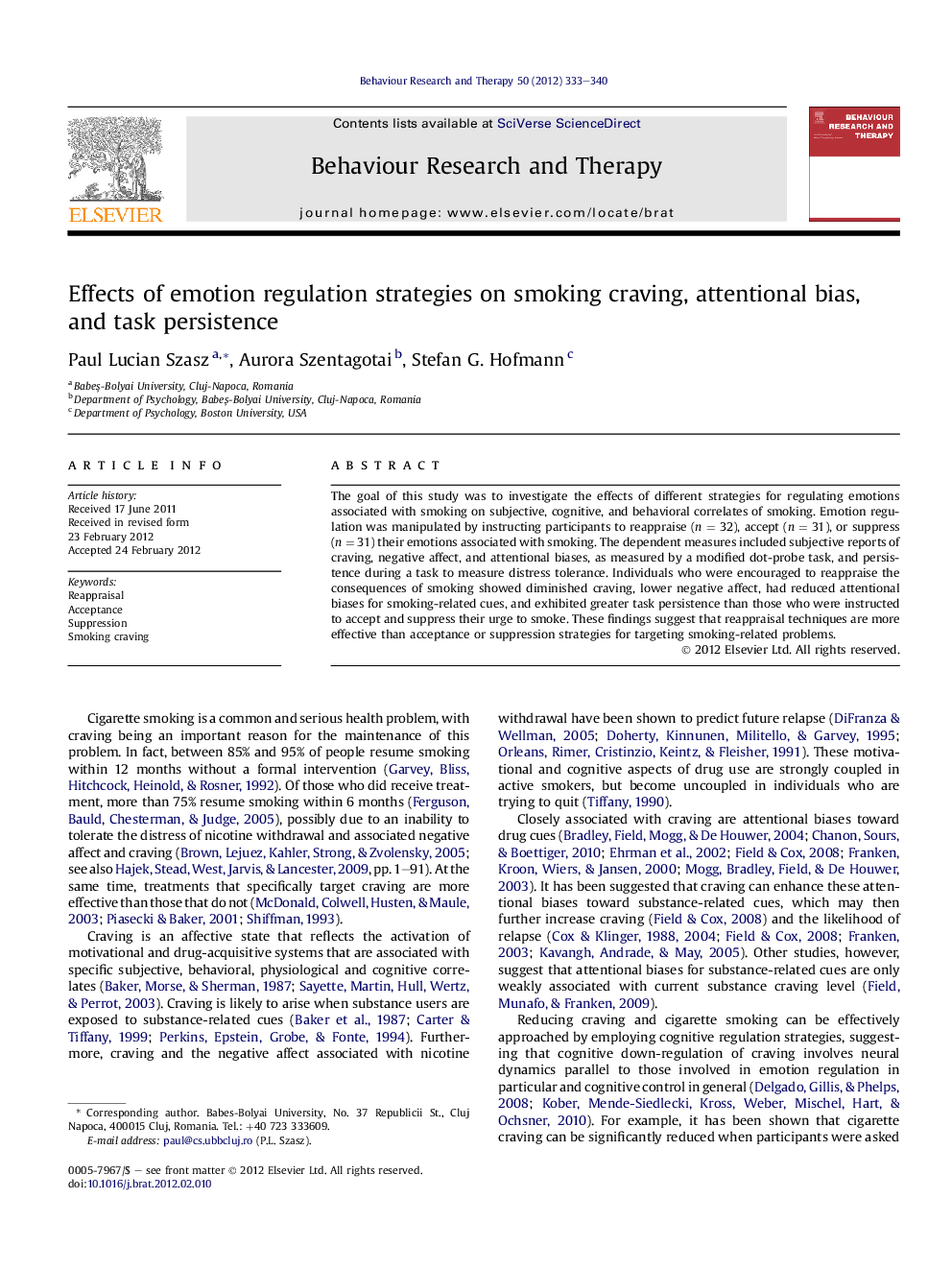| Article ID | Journal | Published Year | Pages | File Type |
|---|---|---|---|---|
| 901992 | Behaviour Research and Therapy | 2012 | 8 Pages |
The goal of this study was to investigate the effects of different strategies for regulating emotions associated with smoking on subjective, cognitive, and behavioral correlates of smoking. Emotion regulation was manipulated by instructing participants to reappraise (n = 32), accept (n = 31), or suppress (n = 31) their emotions associated with smoking. The dependent measures included subjective reports of craving, negative affect, and attentional biases, as measured by a modified dot-probe task, and persistence during a task to measure distress tolerance. Individuals who were encouraged to reappraise the consequences of smoking showed diminished craving, lower negative affect, had reduced attentional biases for smoking-related cues, and exhibited greater task persistence than those who were instructed to accept and suppress their urge to smoke. These findings suggest that reappraisal techniques are more effective than acceptance or suppression strategies for targeting smoking-related problems.
► Reappraisal reduces smoking-related craving and increases task persistence. ► Reappraisal is associated with lower attentional bias for smoking-related cues. ► Reappraisal is more effective than acceptance and suppression. ► Acceptance and suppression strategies exhibited the same effects on smoking craving.
